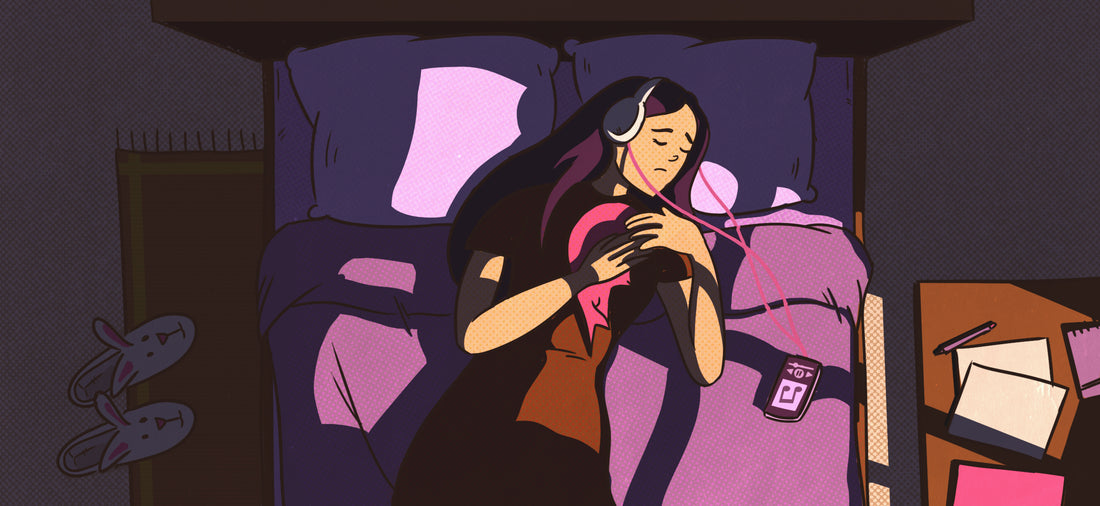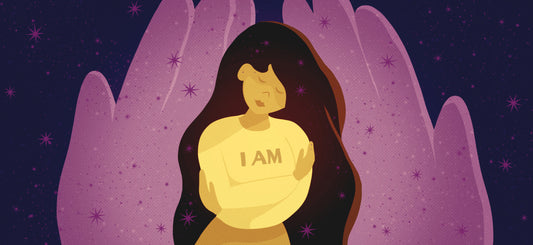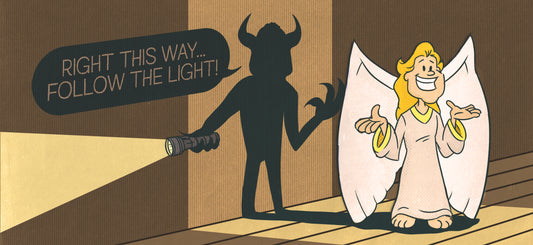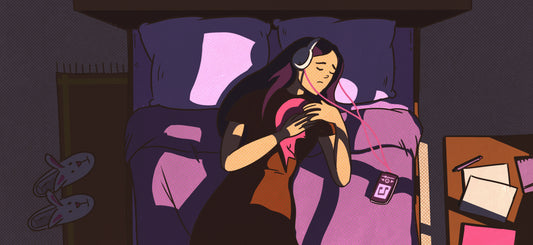We likely all have special songs and albums that we put on when we need to get ourselves into particular mindsets. Whether we are trying to relax from a busy day at the office, motivate ourselves to get the housework done, or to run a little faster at the gym, music is a powerful mood regulator and stimulator that can aid us in accomplishing our goals, and can also help us feel a sense of wellbeing and happiness. Music, just like any other type of sound, is energy made audible. This powerful use of sound energy can calm the nervous system, or get it hyped up, both of which can have beneficial effects. On the flipside, if we aren’t careful or fully aware of how music is being used in our environment, it can also detract from us physically, emotionally, mentally and spiritually.
I’m sure you can think back to a time where things were tough, you were grieving, sad, heartbroken, or angry, and found yourself singing to your steering wheel as that one song played over and over again on repeat, and the tears poured down your cheeks. This is a form of therapy. –sound therapy. –and this is a good thing. This is a great way to purge pent up emotions, and feelings that need to be acknowledged, and released as a mode of cleansing ourselves in a positive way. When used like this, music can serve as a soothing balm to the soul, but like anything, it also has the potential to be harmful. –it's all in how you use it.
Where we tend to run into trouble is when we allow ourselves to be overtaken by the emotions that music induces to the point that we begin spiraling further into our own misery, down-heartedness, frustration and trauma day after day, unable to get out of it. –hurts so nice you play it twice, right? Unfortunately, this can create negative looping within the mind, and causes us to plummet into negative states of being which can even begin to affect our health. This is where music can become a detriment to us, because music holds memory. Music has the uncanny ability to act as a bookmarker for times, places and people in our lives, both good and bad.
Have you ever been having a great day hanging out with friends when a song you haven’t heard in years comes on, and successfully sends a flood of old memories straight to your heart? Suddenly, your good mood is gone, and in an instant it's replaced by a deep sadness as if the incident that is associated with this song has just happened. We’ve all been there, it happens. Unfortunately, if we don’t take the time necessary to resolve our feelings and emotions around disappointing events and memories, we ultimately allow these songs to have a lot of power over us. They actually become triggers, and when left unresolved, these musical triggers can sneak up on us, transporting us back to times that are not so pleasant to revisit, and cause us unexpected pain and torment that can wreck our day right out of the blue. These types of emotional triggers often give rise to suddenly feeling depressed, out of sorts, volatile, and can fuel addictions, or even make us want to hurt ourselves or others.
So, how can we stop this from happening? How can we keep music from dragging us down to the point that it makes us want to punch a wall? First, we have to develop enough self awareness to recognize when it's happening, and be able to say “ok, this song is triggering me. I should turn it off.” Once we understand what is going on, and that we are being emotionally triggered in a negative way, we can start asking ourselves “why” a certain song is triggering to us. This opens our eyes to where we need to focus our attention toward healing or reconciling tough emotions. Of course, this will vary differently from person to person. A song that triggers me may not trigger you, and vice versa.
The good news is that these strong emotional reactions can change if we consciously participate in this process. With time, as we identify and work to resolve our triggers, disappointments and emotional hang ups, you’ll find that a song which was crushing to hear after a tough break up won’t hold the same paralyzing power over you as it did when that heart-wound was fresh, and unreleased. As we work through our emotions with honesty, forgiveness and non-judgment, it is possible to find neutrality toward disappointments, loss or death, trauma and heartache. With time, you may even get to a point where you can enjoy those same songs again, reflecting tenderly on the memories and people associated with it, and even gain the ability to send the other person involved love and well-wishes. This is not a quick fix kind of thing, and it won't happen overnight. It's important to understand that you can not rush the healing process. Some situations may take days, weeks or months to come into acceptance with, and some may take many years. One is not better than the other, as there is no set time frame when it comes to healing our hearts. It takes however long it takes.
As we work towards reconciling our feelings, it's very important to honestly assess and honor where you are in your journey. If we know we are susceptible to being triggered into low or angry states by certain songs, artists or types of music, we should take care to only listen to things that are happy, lighthearted and calm, refraining from using music to participate in misery commiseration. Be realistic. Don’t throw gas on a fire that you are still trying to put out.
As we consciously work to be more aware of our emotions, we learn how to maintain and develop emotional stability. Becoming emotionally stable means that we understand emotions as impermanent. We feel them, honor and acknowledge them as valid, but we do not give them so much power that they define us as a person. Like a painter’s palette, we can choose and accept emotions in a wide spectrum of color. In pain or in joy we can appreciate that we have feelings, senses and a wide emotional spectrum while not letting negative emotions dictate our lives and behavior. It is ok to feel sad, it is ok to feel disappointed, but it’s not ok for negative emotions to be ignored or allowed to fester so much so that we let it Darken us, or sour our spirit. We have to consciously choose to move on from sorrow. We have to want to be happy in order to ever actually feel it.
Even if we aren't working through specific emotional issues, we should still be conscious of the types of music we are listening to or playing, especially in terms of lyrical content. Just like any other type of energy, music exhibits Light (high) and Dark (low) characteristics. (Here we are referring to the overall frequency of a musical piece, not individual treble or bass tones.) If the music we are listening to is frenzied, a-melodic or filled with angst, anger, hatred, screaming, foulness or crude language, this will lower or Darken our own personal vibration and energy field through the principles of resonance.
Have you ever left a concert feeling like your body was still vibrating from the music? That's because it was. The bones of the human body, including our teeth, act as natural tuning forks. Whatever type of sound energy we surround ourselves with, sing or create, our bodies will actually take on that quality of vibration, and it can last even after the music is long over. As like attracts like, if your body is vibrating at a low frequency from a musical impression, you will attract other low frequencies to yourself. Take for instance the now infamous Sam Smith set at the Grammys– What kind of energy did the millions of people who watched that blatantly Satanic performance begin to resonate with? What did that begin to attract into their lives? Are you starting to see the bigger picture now?

So, if the overall goal is to attract high qualities of energy and positive experiences to ourselves, we have to begin monitoring the quality of sound and emotion that colors our world. If we constantly listen to hate-filled, angry music, we are more likely to be angry people who attract experiences that make us even more hate-filled and angry. If all we listen to is sad, whiny or fussy girl rock, we are likely to be sad, whiny and fussy girls who always end up playing the role of victim in real life. In the same way that “you are what you eat,” you become what you listen to.
Music is a potent force that can be used to hurt or heal. It can be medicine, or it can act as a poison. As we integrate this knowledge, we can see how truly powerful music is, and come to better understand why controllers have placed such an iron grip on the music industry. Recognizing this, we must open our eyes to see where music is being used to control what manifests into our reality.
When we begin to pay more attention to the themes, and subject matter that are present in today’s music, we also begin to realize that we are being plied with propaganda 24/7. Whether it’s social or political ideology, narcissistic mindsets, materialism, misogyny, adultery, idolatry, Dark sexuality, Dark femininity or even Satanism, music is being used to shape our world, beliefs, thoughts, moods and behavior. Top 40, pop and hip-hop music is specifically designed to shape the values and ideals we hold as a society, while making it seem like these lifestyle choices are made and developed as part of our own free will. However, this is clearly not the case. Music executives regulate who gets the top spots inside the industry hierarchy in such a way that it creates a trickle down effect where aspiring and independent artists naturally think they have to do or sing about X,Y & Z, and look, dress, speak, believe and act a certain way to have any chance of making it big. With the help of mass and social media, a convoluted reward system is created that encourages an environment of mimicry and veiled conformity where we’ve now found ourselves swimming in a tainted soup of controlled subject matter, and Dark lifestyle ideology across all genres and levels of the music business. The same goes for other facets of the entertainment industry, too, like movies and television. By subconsciously steering artists, creatives, and influencers toward specific trends, belief systems and ways of being, this enables a small group of executives the ability to actually manufacture our reality by energetically manipulating, and behaviorally modifying the masses through the quality of music and art that is being created and broadcast, which goes on to determine our definition of normalcy.
Think about it, if we are constantly surrounded by low frequency sound, subject matter and Dark visuals at every turn, without being given the knowledge of how it affects us, how can we manifest anything but low energy into our lives? We can’t. –and if we don’t know this is possible, or that our bones and bodies are taking on the resonance of these Dark frequencies, we are naturally apt to think that what is happening around us is all just “normal” societal progression, which couldn’t be further from the truth. In fact, we are being intentionally Darkened, triggered and controlled via programming.
When I was in high school in the early 2000’s, Abercrombie & Fitch was a big deal. When the new store opened in our mall, I can remember going inside, and not being able to think because the music was so loud and frantic. The constant bump, bump, bump of the stereo system made my heart pound, and even though it was “the place to shop” I couldn’t stay in the store. Years later, it was disclosed that Abercrombie specifically curates their store playlists to blare certain types of music because studies show that in most people it subliminally encourages an impressionable mental state, and induces speed shopping. Think about other places you’ve been to like malls, boutiques, bars and restaurants that do this, too, and how it affects the speed at which you shop, or consume your meal and beverage. It's a well studied fact that loud and frenzied music generates a stress response in individuals that leads to consuming more at a faster pace. In terms of use inside of a restaurant environment, in addition to high food and alcohol consumption rates, this tactic leads to faster table turn over, and ultimately improves a business’ bottom line. The same goes for sporting events where they want fans to consume as much as possible from the concession stands, and stadium stores. Can you see now how we are being manipulated by sound even when all we really want to do is enjoy a meal, or watch a ball game?
So when you come into contact with music, ask yourself “what emotion is this song trying to elicit from me? –is it being used to purposefully affect my mood? Is it shifting me into a stressful mindset? Is it speeding me up? –what ideas or values is it aiming to instill into my mind and psyche?” When we begin asking these types of questions, we can discern if something is helping or harming us.
For example, I love jazz. If I put on music in the evenings to cook, or relax on the balcony it's usually some type of vintage jazz. –but over the years I’ve come to learn that I can not listen to hot, New York style jazz, at all. It’s not necessarily because I don't like it, but because it’s usually too frenzied, and causes my mind to race while eliciting feelings of anxiety. I know this happens when I listen to or am surrounded by these types of sounds, so I go out of my way to avoid this type of music, and the places that play this kind of jazz as part of their ambience.
This effect can also be situational. Think about when you are driving a car or sitting in traffic. If you are listening to music that is intense or extremely fast paced, you are more likely to speed, become agitated or drive aggressively. As this is the case we should be mindful of how music can contribute to things like road rage, and irritability. Take into consideration how certain music affects the energy of your children, too. Just like a spa, we can use music to help induce peace and relaxation where its needed. If your child is an anxious, rambunctious or restless passenger, you should make a point to play soothing music when in the car.
I’m sure we’ve all seen spy dramas where some poor hostage is stuck in a tiny room while the same Justin Bieber song blasts over and over again until it drives him to comply with his captors demands. Using music as a weapon and torture device is a very real thing, so don’t do it to yourself, or your family. Once we know how and why sound energy affects us, we can take proper measures to protect ourselves from experiencing the ill-effects of music. Again, this can be very individualized, what affects me poorly may not affect you in the same way, but what we listen to, play and create musically really does matter. If you want to feel your best and begin attracting higher qualities of energy, and more pleasant experiences into your life, you should start re-evaluating the music you are surrounding yourself with, while also taking into account how you are being manipulated by sound as you go about your day.
Music is powerful, but so is knowledge. As we learn more and more about how energy works, we can take back control, and return music to its rightful place in our lives as a mode of healing, and a way to celebrate and honor our human experience.
Sending love, and lots of good vibrations,
-Mallory


